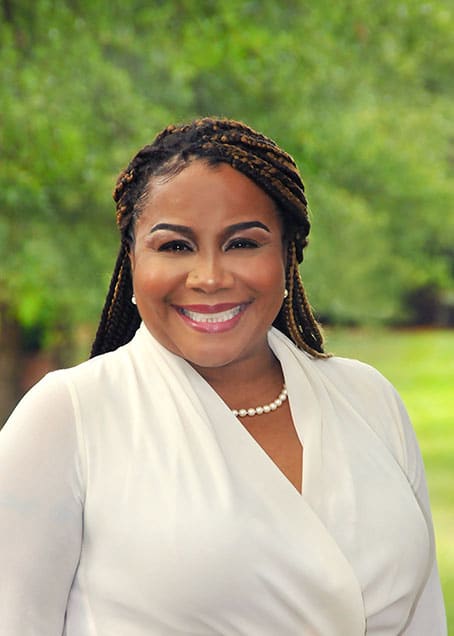Charlotte Divorce and Family Law Attorneys
Mecklenburg County NC
Aggressive representation for family law clients in
Charlotte, Weddington, Boone, and throughout North Carolina
Any area of family law may present legal, emotional, and financial difficulties. From divorce to custody disputes to premarital agreements, you are dealing with issues that will profoundly impact every aspect of your life. With the right legal counsel, however, you can reach resolutions that can help you build a brighter future.
At Epperson Law Group, PLLC, we are focused on smart, reasonable, and lasting legal solutions. Our divorce lawyers in Charlotte, Weddington, Boone and Concord are dedicated and accomplished practitioners in all aspects of divorce and family law issues, with over 70 years of combined legal and trial experience to apply to your case. We invite you to contact us to schedule a reservation, so we can discuss your needs and goals.
North Carolina falls in the middle of the country when it comes to divorce rates. In 2017, 3.1 out of every 1000 residents got divorced.
highest divorce rate in the country.
(USA TODAY)
Charlotte divorce lawyers who care about your best interests
Divorce can be traumatic, even when the decision is both mutual and amicable. It can also be frustrating, trying to divide one life into two while simultaneously creating a new path forward for your new family dynamic. When you’re going through a divorce, if it is not the first thing you think of, then it is the second or third – and it is almost certainly the last thought you have at the end of the day, before you lay down your head.
Epperson Law Group, PLLC, is the firm you can trust to guide you through the divorce process at every step. Our Charlotte divorce attorneys have the skills, resources, and experience to represent your best interests in matters concerning:
|
Whether you have been married for decades or months, have accrued significant assets or share a retirement account, or are part of a “traditional” marriage or need someone who is sensitive to the concerns of LGBTQ+ families, we want to help. At Epperson Law Group, we understand that the concerns you have today about your future may not simply end because your divorce has been finalized. We take our role as your counselor seriously, creating solutions that work in the immediate months after your divorce and in the years ahead. Our goal is to ensure that you have the best possible chance at your best possible future.
Charlotte family law attorneys protecting families
Divorce is hard on couples, and it can be even harder on children. North Carolina law places the best interests of your children above all else. At Epperson Law Group, PLLC, our mission is to prove that your interests are aligned with the best interests of your children. You can rely on us for careful, practical guidance for assistance with:
- Parenting plans
- Child custody
- Child support
- Agreement and order modification
- Order enforcement
- Issues of paternity
- Termination of parental rights
- Domestic Violence & Orders of Protection
Our Charlotte family law attorneys also help bring and keep families together. Whether you are looking to adopt, or are a grandparent who wishes to protect your grandchild, you can look to us for help. We can also assist with estate planning and administration, and with the drafting of wills and trusts to help protect your assets and your wishes. If you or a loved one has a potential tort claim we can assist with this as well.
Former U.S. Military JAG Corps officers fighting for servicepeople’s rights
When you serve our country at home or overseas, you have decided to put the country’s best interests before your own. The sacrifices you made are innumerable, and in many cases, your marriage may be the final unintended sacrifice: a recent piece by MarketWatch reported that military jobs took three places out of their Top 10 jobs most likely to lead to divorce, finding that “military workers of all ranks were most likely to be divorced by age 30, at a rate of 15%.”
As former JAG officers, founders James L. Epperson and Steven B. Ockerman are uniquely equipped to understand the types of stress that service can have on marriages and families. Our firm understands that there are certain laws in place that are designed to protect servicemembers’ rights to time with their children, as well as their pensions. Whether you are stationed at Fort Bragg, Camp Lejeune, Elizabeth City or Seymour Johnson, are currently deployed, or have retired to North Carolina, please contact us for help regarding:
Meet the attorneys of Epperson Law Group
Why Epperson Law Group, PLLC is the right choice for divorce and family law counsel
When your life is about to change, you deserve a law firm which not only understand the legal ramifications of your divorce, but also the emotional and psychological effects, too. We put more than 70 years of combined experience to work for our clients every single day. While many Charlotte divorce and family law cases are settled through mediation and negotiation, we are equipped to represent you in court should litigation be necessary to secure the best possible outcome for your case. If the Court gets it wrong, we handle appeals and post-trial motions. We are fierce negotiators and formidable opponents who prepare every case as though trial may be imminent, so that we can aggressively advocate for our clients when they need it the most.
At Epperson Law Group, PLLC, we take the time to listen to you. Unless we are in court, we answer our phones when you call, and respond to emails quickly. This consistent communication is key to whatever strategy we design for your divorce, support, and custody needs. We want you to understand every step of the process, and to know all of the potential outcomes, so you can make good, sound decisions about your future.
We understand how difficult divorce is. Part of our job is to provide relief from the daily stress associated with the divorce process. This is why we make sure that you are always up to date on the status of your case, and answer your calls and questions in a timely manner. We are your advocates inside and outside of the courtroom, and can help you find outside resources to ease some of the burdens you face, too.
What sets Epperson Law Group apart is our ability to help you plan for the short and long term. By taking a holistic view of the practice of family law, we can protect our clients’ futures, and ensure they have the tools, skills, and resources they will need to create new paths forward.
Is your family law and divorce lawyer near me?
Epperson Law Group has offices in Charlotte, Weddington and Boone, but we serve clients throughout North Carolina. Rest assured, however, that if you are unable to come to us, we will travel to visit you. We also offer virtual conferences and telephone consultations.
Dedicated family law and divorce lawyers in Charlotte, Boone, and Weddington
Whether you are going through a divorce, facing a child custody dispute, or fighting for your right to spousal support, one thing remains the same — you need an experienced family law attorney. Epperson Law Group, PLLC has the experience to handle all manner of family law and divorce cases. To reserve a consultation at one of our offices in Mecklenburg County NC, Boone, Weddington or Concord, please call 704-321-0031 or fill out our contact form. We are bilingual and you can contact us in English and French.









